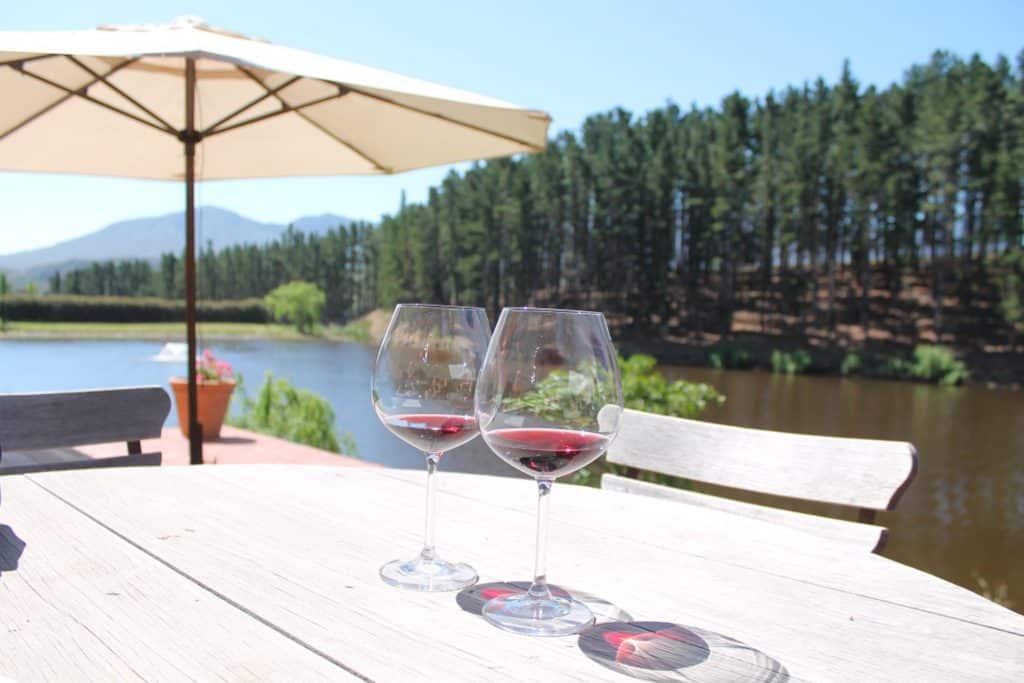The Best Time to Visit Cape Town, South Africa
South Africa is at the very top of travel wish-lists for wildlife-enthusiants, wine-lovers and beach bums looking for a holiday to remember. The country is known for it’s affordable adventure activities, remote experiences and incredible nature.
When is the best time to visit South Africa? The simple answer is, now. The South African Rand has never been weaker. While this is a sad reality for the residents of South Africa, it’s a huge advantage for people looking to travel to South Africa with just about any foreign currency.
What Is My Money Worth In South Africa?
Today, (7 September 2018), the South African exchange rate is:
- USD 1 = ZAR 15.10
- EUR 1 = ZAR 17.59
- GBP 1 = ZAR 19.55
Just to put things into perspective, ZAR19,55 is enough to buy you 2 750ml Lion Beers. Yep, you read right, that’s 2 750ml beers for £1.
While flights can be a bit pricey (as with anywhere else in the world), it’ll be your biggest expense. Keep your eye out for a good flight deal, and the rest of your holiday in South Africa is bound to be surprisingly affordable.
Now, let’s take a look at our top reasons that now is the best time to visit Cape Town, South Africa.
Affordable Places To Stay In Cape Town
Previously when visiting Cape Town, your only decent accommodation options would have been expensive hotels, bed and breakfasts, or pricey private rentals. In today’s world of AirBnB and backpackers aplenty, you’ll find yourself snatching an ultra-comfortable place to stay at a fraction of what it used to cost.
On AirBnB you’ll find an incredible, private 2 bedroom apartment in the heart of Cape Town for well under R1,000 (or £50) per night. The average price of accommodation on AirBnB has dropped recently. We’re not sure if this is due to the drought, or the higher number of homes being listed. Either way, it works to the advantage of international visitors.
You could also choose to look at one of the many luxury backpackers in Cape Town, The Surf Shack for example offers luxury en-suite double bedroom accommodation from just R650 per night.
Consider Staying Outside Of Cape Town
When looking for the best places to stay in Cape Town, it’s important to consider location. Areas like central Cape Town, Sea Point and Camps bay are likely to be a lot pricier. Oftentimes, it’s worthwhile to look at areas that lie outside of the centre of Cape Town, as you’ll get a lot more bang for your buck. Look for private apartments right on the beach in Milnerton, Big Bay or Blouberg. There are a host of jaw-droppingly beautiful accommodation options in these areas, for a fraction of the cost. Transport is also affordable, so you won’t need to worry to0 much about getting around.
You could also consider heading out towards to Overberg (1.5 hours drive from Cape Town International Airport). This area is a lot less crowded than Cape Town itself, and offers a combination of sweeping mountain ranges, untouched coastlines, prestine beaches and small towns with curio shops, cafes and fish fresh off the boat.
Fun fact: A total number of 1,347 Southern Right Whales have been spotted between Hawston and Witsands, near Hermanus this year alone. This is almost exactly triple the amount of whales counted at nearly the same time (1st week of Sep) in the same area in 2017, and a new all time record for southern right whales counted along our coast! Read more here.
Cape Town Transport Options- More Than Ever
Another element working in favour of holiday-makers in Cape Town, is the array of transport options. Previously, visitors only really had the options of overpriced private taxis or hiring a car as means of safe transport in Cape Town.
It’s no secret that South Africa’s public transport systems have a lot of work to do before they meet international standards. Fortunately, private transport isn’t far off from most other countries. With companies like Uber, Taxify and Rent-a-Cheapie in the mix, there’s no shortage of affordable and safe transport options available.
Another option is to get a tour guide for the duration of your stay. This allows you to sit back and relax, while your daily transport and activities are taken care of. We’re not one to toot our own horns, but check out our affordable tour guide options.
Wining and Dining For Less
As South Africans born and bread in Cape Town, we were shocked at the prices of eating and drinking at restaurants and bars when travelling. We went from dining out at beautiful seaside restaurants, to paying double and sitting on the curb outside a kebab shop on our recent trip to Hong Kong.
Cape Town offers a range of small cafe’s, luxury restaurants, and stalls across the city. The quality and standard of food providers in generally high. Expect large portions at affordable prices. You’re looking at around R150 (£8) for a really nice meal at a restaurant.
As for the wine, Cape Town is renowned for it’s multitude of breathtaking vineyards and high quality wines at affordable prices. Top off your stay with a wine-pairing experience, and you’ll never want to leave. You’re looking at around R50- R80 (£3- £4) for a good quality bottle of wine in most supermarkets.
Affordable Adventure Activities
Emmerse yourself into the uniquely South African culture with a range of authentic African adventure activities. Again, the internet culture has changed the game, and experiences are being offered for cheaper than before. By making use of AirBnB experiences, or using a local tour guide, you’ll be treated to everything from scenic plane rides, to guided waterfall hikes and guided wildlife safaris without breaking the bank. Check out bookmundi’s guide of the best things to do in Cape Town, here.
And for the wave-riders reading this, you’re in for one helluva treat when it comes to Cape Town surfing! Cape Town surf camps and Surf guide experiences are growing in popularity, allowing surfers to take full advantage of their time in Cape Town. Check out Ripcurl’s The Search on their latest visit to Cape Town, here.
The Drought Has Chilled Out
Just a few months ago, the drought in Cape Town was a serious factor to be considered for travellers planning their trips to Cape Town. Travellers were daunted by the prospect of Cape Town reaching ‘day zero’, and how it would affect their holiday in the city. Luckily, the city’s dam supply levels have risen significantly as a result of steady rains. While Cape Town is still keeping water consumption down, it’s a lot more manageable now, with the effects on daily life very minimal.
If affordable luxury accommodation, good quality wine, delicious food, and authentic adventure isn’t enough to convince you that now is the best time to visit Cape Town- it’s also heading into Summer. Cape Town’s hottest climate extends from late November to around March.




